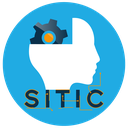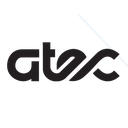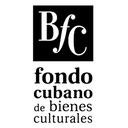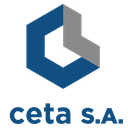Executive Secretary

III International Symposium on “Generation and Transfer of Knowledge for Digital Transformation
SITIC 2025
Abstract
Digital transformation and Open Science (OS) are two fundamental pillars for sustainable development in the 21st century. Digital transformation involves the strategic integration of information and communication technologies (ICTs) into organizational, social, and economic processes, enabling management modernization and improving efficiency in various sectors. Digital transformation and OS have gained relevance in the scientific policies of numerous countries. In Latin America, countries such as Brazil, Chile, and Spain have developed robust strategies to promote open access and interdisciplinary collaboration. These initiatives have focused on strengthening research networks, digital repositories, and multilingual projects that facilitate the circulation of knowledge, aligning with the Sustainable Development Goals (SDGs). In the case of Cuba, digital transformation has been driven primarily by the Digital Transformation Policy and Decree Law 370. This research aims to analyze international regulations to identify the strengths, weaknesses, and opportunities of the current regulatory framework, with the aim of proposing recommendations that promote more inclusive development aligned with the demands of the 21st century. Furthermore, this work aims to fill knowledge gaps regarding how existing regulations can be adapted to foster the democratization of knowledge, enabling greater equity and citizen participation in scientific processes.
Resumen
La transformación digital y la Ciencia Abierta (CA) son dos pilares fundamentales para el desarrollo sostenible en el siglo XXI. La transformación digital implica la integración estratégica de tecnologías de la información y comunicación (TIC) en procesos organizativos, sociales y económicos, permitiendo modernizar la gestión y mejorar la eficiencia en diversos sectores. La transformación digital y la CA han ganado relevancia en las políticas científicas de numerosos países. En Iberoamérica, países como Brasil, Chile y España han desarrollado estrategias robustas para promover el acceso abierto y la colaboración interdisciplinaria. Estas iniciativas se han centrado en fortalecer redes de investigación, repositorios digitales y proyectos multilingües que facilitan la circulación del conocimiento, alineándose con los Objetivos de Desarrollo Sostenible (ODS). En el caso de Cuba, la transformación digital ha sido impulsada principalmente por la Política para la Transformación Digital y el Decreto Ley 370. La presente investigación persigue analizar las normativas internacionales, para identificar las fortalezas, debilidades y oportunidades del marco normativo actual, con el objetivo de proponer recomendaciones que impulsen un desarrollo más inclusivo y alineado con las demandas del siglo XXI. Además, este trabajo pretende llenar vacíos de conocimiento sobre cómo las normativas existentes pueden adaptarse para fomentar la democratización del conocimiento, permitiendo una mayor equidad y participación ciudadana en los procesos científicos.
About The Speaker

Anamarys Toscano Menocal

Discussion

 Gold
Gold
 Gold
Gold
 Gold
Gold
 Gold
Gold
 Silver
Silver